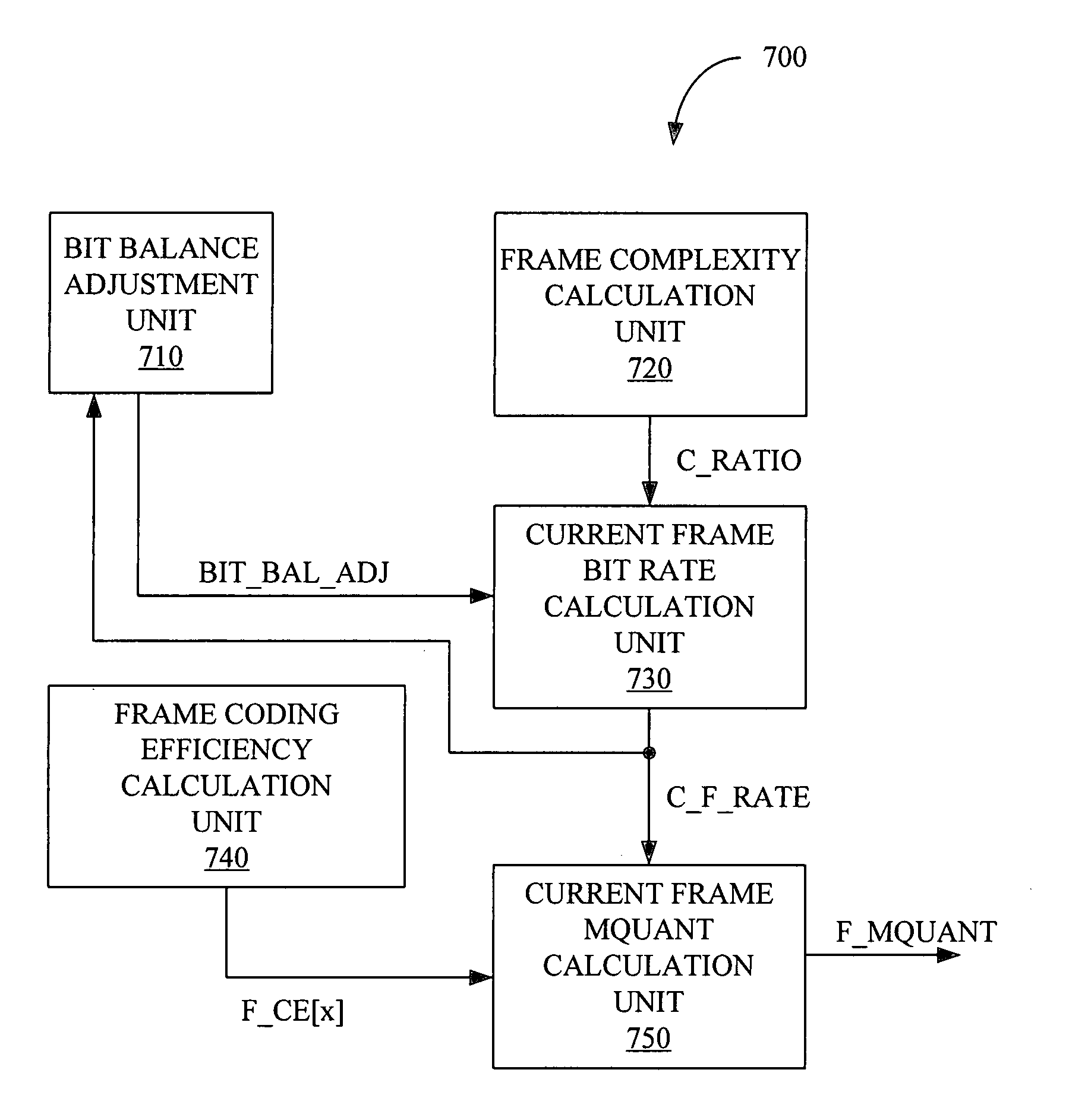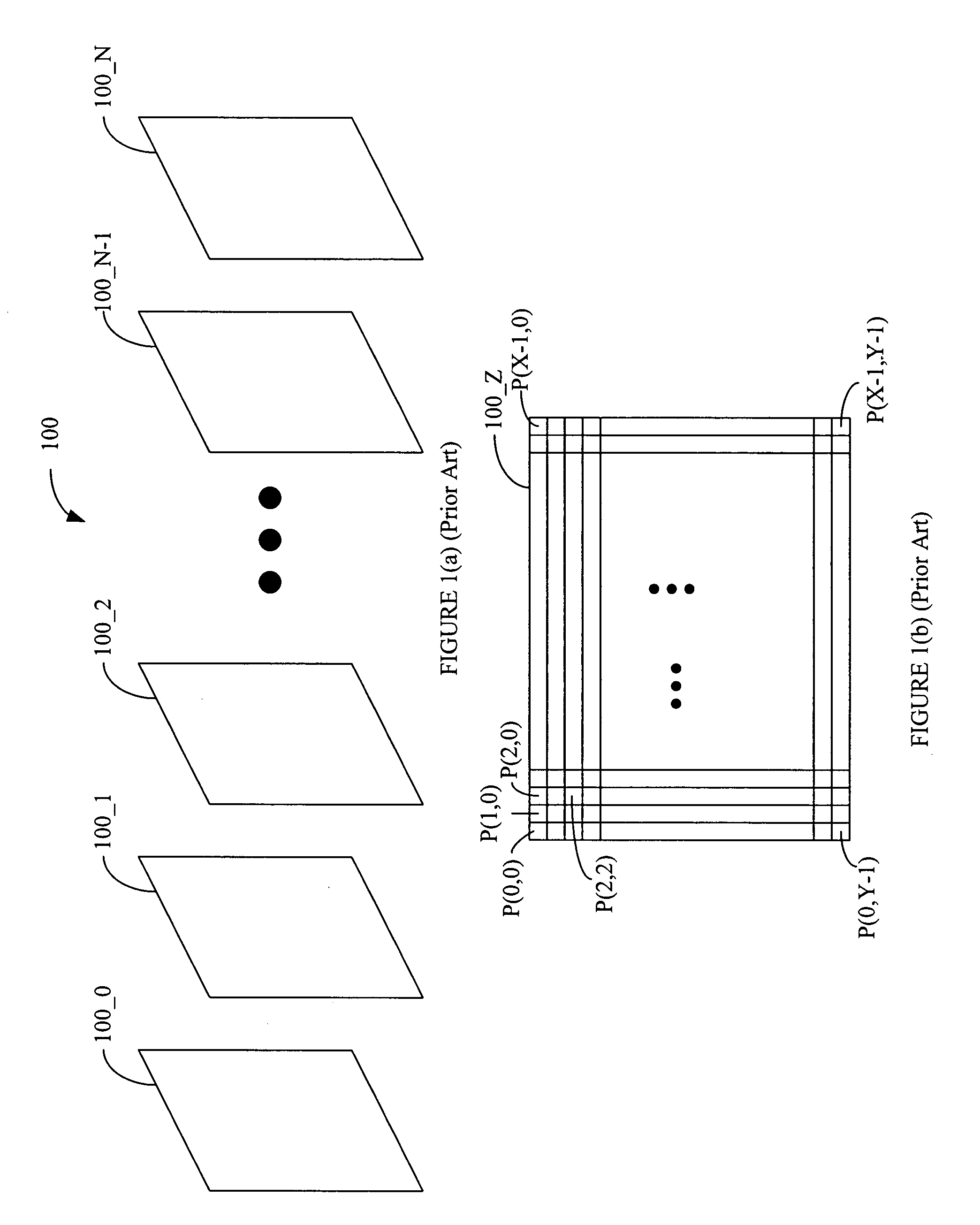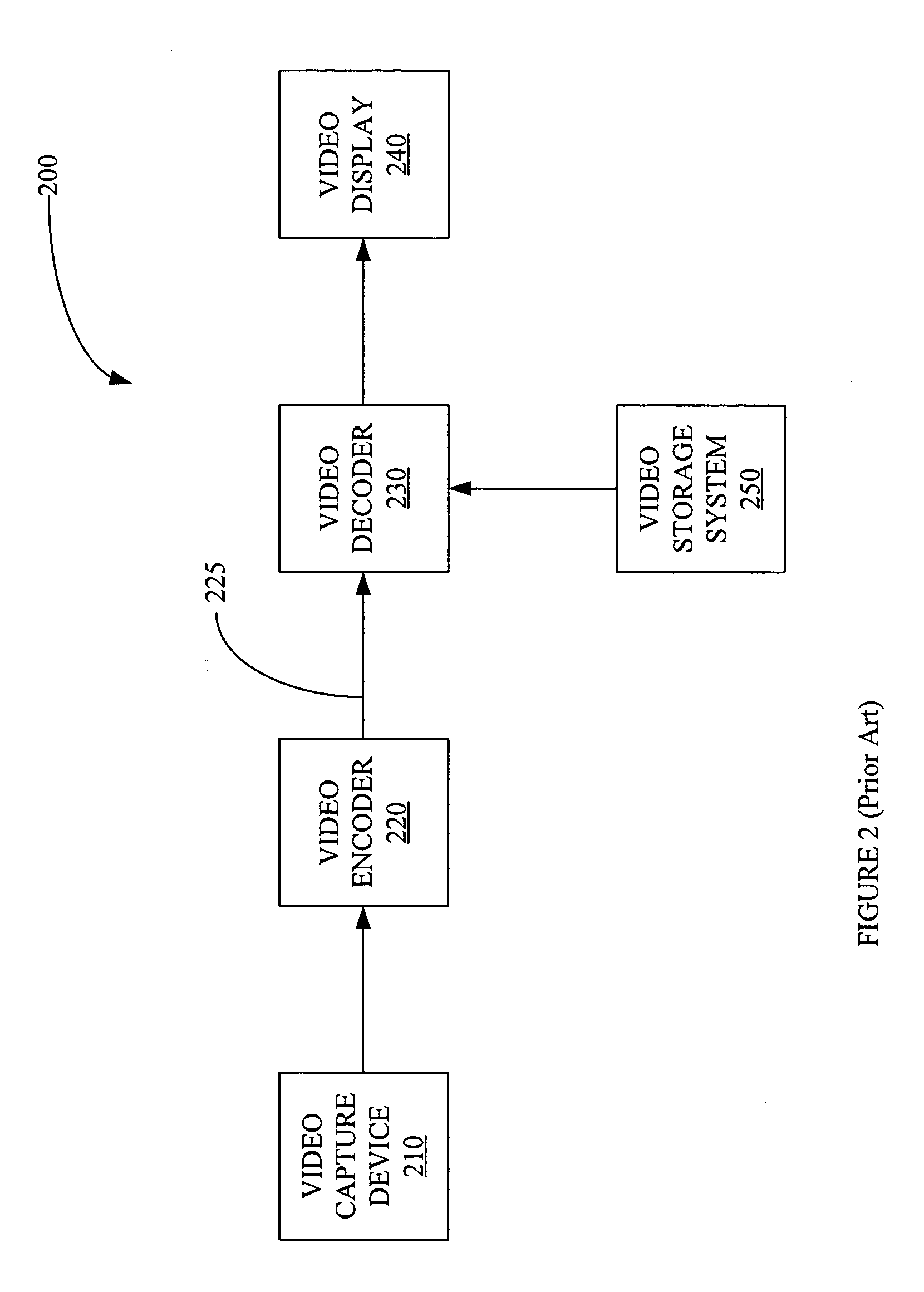Video encoding using variable bit rates
a variable bit rate and video encoding technology, applied in the field of digital video encoding, can solve the problems of complex object recognition process, large increase in functionality and complexity of integrated circuits (ics), and large increase in computational overhead, so as to improve the quality of complex pictures, increase computational overhead, and improve picture quality
- Summary
- Abstract
- Description
- Claims
- Application Information
AI Technical Summary
Benefits of technology
Problems solved by technology
Method used
Image
Examples
Embodiment Construction
[0027] As explained above, video encoders using variable bit rate can produce an encoded video stream with higher overall picture quality than using constant bit rate. However, to achieve the higher picture quality the available bits must be allocated to the frames in an intelligent manner. Depending on the channel and decoder to be used with the encoded video stream, certain constraints on the variable bit rate are present. Specifically, a burst bit rate BURST_RATE is the maximum bit rate that the channel can accept data and a target bit rate TARGET_RATE is the rate that the average variable bit rate should equal. For convenience these bit rates are converted to a per frame bit rate. Specifically, a frame burst bit rate F_BURST_RATE is equal to the burst bit rate BURST_RATE divided by a frame rate F_RATE of the video stream (i.e. F_BURST_RATE=BURST_RATE / F_RATE). Similarly, a frame target bit rate F_T_RATE is equal to the target bit rate TARGET_RATE divided by frame rate F_RATE of t...
PUM
 Login to View More
Login to View More Abstract
Description
Claims
Application Information
 Login to View More
Login to View More - R&D
- Intellectual Property
- Life Sciences
- Materials
- Tech Scout
- Unparalleled Data Quality
- Higher Quality Content
- 60% Fewer Hallucinations
Browse by: Latest US Patents, China's latest patents, Technical Efficacy Thesaurus, Application Domain, Technology Topic, Popular Technical Reports.
© 2025 PatSnap. All rights reserved.Legal|Privacy policy|Modern Slavery Act Transparency Statement|Sitemap|About US| Contact US: help@patsnap.com



